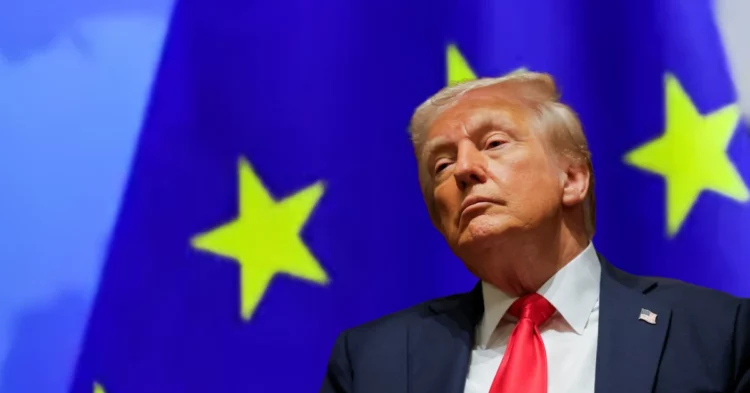European leaders call on the U.S. to maintain firm sanctions as diplomatic talks with Russia loom, aiming to strengthen leverage over Putin’s government
As the anticipated summit between U.S. President Donald Trump and Russian President Vladimir Putin draws near, European officials are urging the White House to uphold and even intensify economic sanctions on Russia. The goal is to maximize diplomatic leverage and pressure Moscow into making concessions on critical geopolitical issues.
Europe’s call comes amid heightened tensions over ongoing conflicts involving Russia and its global posture, as well as concerns about Russia’s influence in Eastern Europe and beyond.
The Strategic Importance of Sanctions Before the Summit
European leaders believe that maintaining stringent sanctions on Russia’s economy, energy sector, and key political figures is essential to ensure that the upcoming summit results in meaningful dialogue rather than mere symbolism.
Sanctions currently target major Russian banks, oligarchs, and industries linked to Moscow’s controversial policies, including actions in Ukraine and alleged election interference in Western democracies.
Officials warn that relaxing sanctions ahead of the summit could be perceived by Russia as a sign of weakness, undermining Western unity and reducing the U.S. and Europe’s negotiating power.
What Europe Wants from the Trump Administration
European policymakers are encouraging the Trump administration to demonstrate a unified front with the EU and NATO allies by:
- Sustaining existing economic sanctions without any early lifting or easing
- Considering the expansion of sanctions to target additional sectors if Russia fails to show progress
- Coordinating diplomatic messaging closely to reinforce pressure on Moscow
- Ensuring any agreements at the summit include concrete commitments from Russia on conflict resolution and security issues
The emphasis is on using sanctions as a diplomatic tool rather than removing them prematurely for political expediency.
Context: Ongoing Conflicts and Geopolitical Stakes
Russia’s involvement in Eastern Ukraine, military actions in Syria, and suspected cyber activities have strained relations with Western nations for years. The European Union, along with the United States and Canada, has relied on sanctions as a primary means of response.
The upcoming summit is viewed as a critical opportunity to address these challenges. However, European governments remain cautious, emphasizing that sanctions should remain a key element of Western policy until verifiable progress is made by Russia.
Reactions from Washington and Moscow
While the Trump administration has signaled openness to engaging with Putin and potentially recalibrating relations, it has faced internal debate over how tough to remain on sanctions.
Meanwhile, Moscow has repeatedly called for sanctions relief but has shown limited willingness to alter its policies that prompted sanctions in the first place.
Europe’s position adds pressure on the U.S. to resist any quick rollback of penalties that could undermine alliance cohesion and strategic objectives.
Looking Ahead: Potential Outcomes and Risks
The balance between diplomatic outreach and economic pressure will be crucial in the lead-up to the summit. Experts warn that lifting sanctions prematurely could embolden Russia, while maintaining them without progress risks prolonging tensions.
European leaders emphasize that sanctions are not an end but a means to encourage responsible behavior by Russia, seeking a stable and secure international order.
European countries are urging President Trump to leverage sanctions powerfully before meeting with Vladimir Putin. By sustaining and potentially increasing sanctions pressure, they aim to strengthen the West’s negotiating position and push Russia toward resolving ongoing geopolitical conflicts. The effectiveness of this strategy will significantly influence the outcomes of the upcoming summit and the future of international relations.

